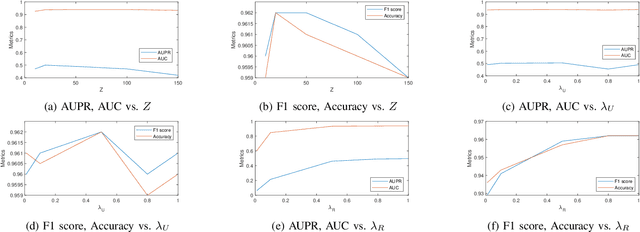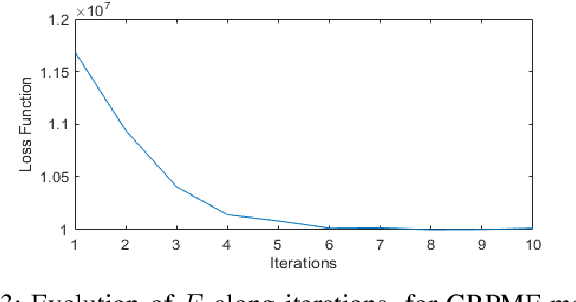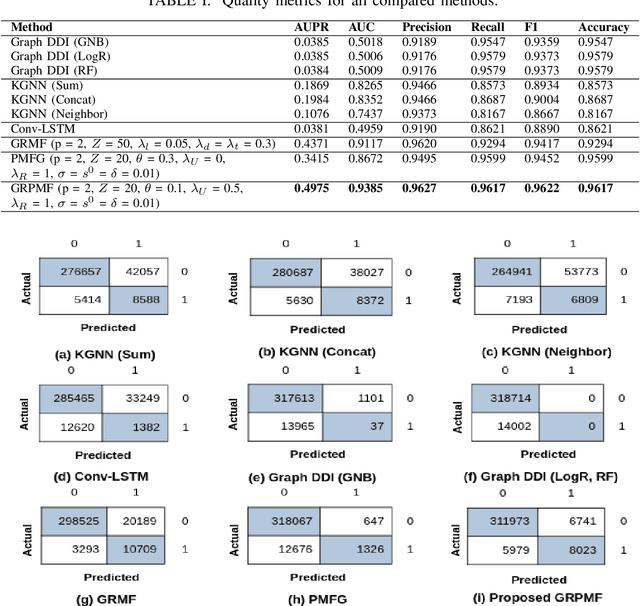Kriti Kumar
Graph Regularized Probabilistic Matrix Factorization for Drug-Drug Interactions Prediction
Oct 19, 2022


Abstract:Co-administration of two or more drugs simultaneously can result in adverse drug reactions. Identifying drug-drug interactions (DDIs) is necessary, especially for drug development and for repurposing old drugs. DDI prediction can be viewed as a matrix completion task, for which matrix factorization (MF) appears as a suitable solution. This paper presents a novel Graph Regularized Probabilistic Matrix Factorization (GRPMF) method, which incorporates expert knowledge through a novel graph-based regularization strategy within an MF framework. An efficient and sounded optimization algorithm is proposed to solve the resulting non-convex problem in an alternating fashion. The performance of the proposed method is evaluated through the DrugBank dataset, and comparisons are provided against state-of-the-art techniques. The results demonstrate the superior performance of GRPMF when compared to its counterparts.
An Improved Tracking using IMU and Vision Fusion for Mobile Augmented Reality Applications
Nov 10, 2014



Abstract:Mobile Augmented Reality (MAR) is becoming an important cyber-physical system application given the ubiquitous availability of mobile phones. With the need to operate in unprepared environments, accurate and robust registration and tracking has become an important research problem to solve. In fact, when MAR is used for tele-interactive applications involving large distances, say from an accident site to insurance office, tracking at both the ends is desirable and further it is essential to appropriately fuse inertial and vision sensors data. In this paper, we present results and discuss some insights gained in marker-less tracking during the development of a prototype pertaining to an example use case related to breakdown or damage assessment of a vehicle. The novelty of this paper is in bringing together different components and modules with appropriate enhancements towards a complete working system.
 Add to Chrome
Add to Chrome Add to Firefox
Add to Firefox Add to Edge
Add to Edge